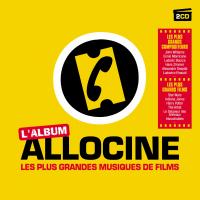/5
0 avis
The complete Harry Potter film music collection / John Williams
Musique audio
Edité par Silva Screen Records Ltd.. S.l. - 2012
Vérification des exemplaires disponibles ...
Ecouter les fichiers audio
1 -- Hedwig's theme (Harry Potter and the philosopher's stone)
2 -- Harry's wondrous world (Harry Potter and the philosopher's stone)
3 -- Nimbus 2000 (Harry Potter and the philosopher's stone)
4 -- Christmas at hogwarts (Harry Potter and the philosopher's stone)
5 -- Leaving Hogwarts (Harry Potter and the philosopher's stone)
Se procurer le document
Vérification des exemplaires disponibles ...
Autre format
Issus de la même oeuvre
Chargement des enrichissements...



